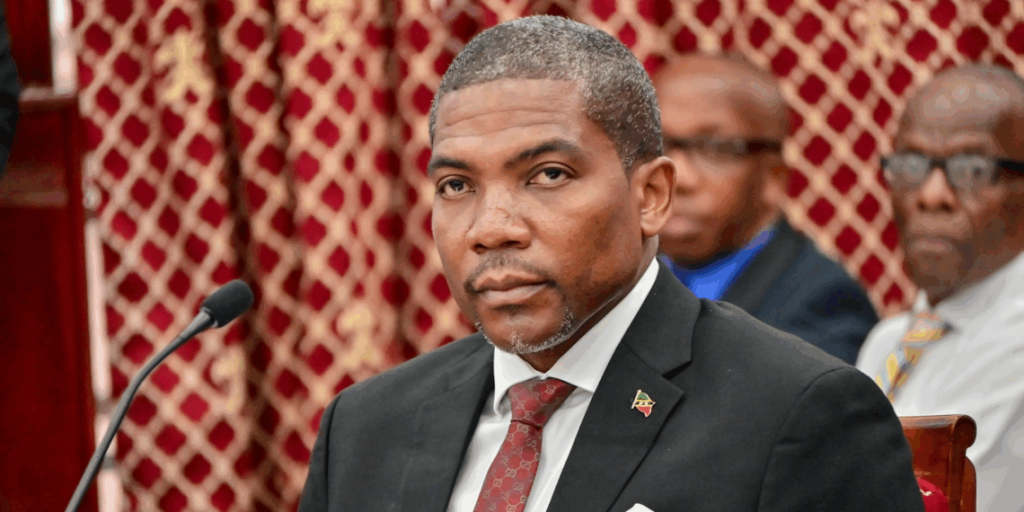Prime Minister Advocates for Enhanced OECS Regional Cooperation at Seventh Assembly Sitting
The 7th Sitting of the Organization of Eastern Caribbean States (OECS) Assembly, held in Montserrat, saw a strong call to action from Prime Minister of St. Kitts and Nevis, Hon. Dr. Terrance Drew, urging member states to leverage their collective bargaining power on the global stage. Dr. Drew emphasized that the OECS, though comprised of small island developing states, possesses significant potential for influence if it presents a united front. He argued that individual nations often lack the clout to negotiate favorable terms with larger, more powerful countries and international organizations, particularly in areas like climate finance, trade agreements, and access to development assistance. By pooling their resources, aligning their interests, and speaking with a single voice, the OECS can amplify its impact and secure better outcomes for its citizens.
Prime Minister Drew highlighted several key areas where collective bargaining could yield substantial benefits. Climate change, a pressing existential threat to the region, requires substantial financial resources for adaptation and mitigation measures. Individually, OECS states struggle to access the necessary funding from global climate funds. However, a unified approach, presenting a consolidated proposal for regional climate resilience, could significantly enhance their ability to secure the required financial support. This collective approach would also strengthen the OECS’s position in international climate negotiations, ensuring their unique vulnerabilities and needs are adequately addressed.
Beyond climate finance, Dr. Drew emphasized the importance of leveraging collective strength in trade negotiations. Smaller economies often struggle to negotiate equitable trade deals with larger trading partners, often resulting in unfavorable terms that can hinder local industries and economic growth. By presenting a united front, the OECS can negotiate from a position of strength, securing more advantageous trade agreements that promote sustainable and inclusive development across the region. This unified approach can also create a more attractive investment climate, attracting foreign direct investment and fostering regional economic integration.
Furthermore, Prime Minister Drew underscored the potential of collective bargaining in accessing development assistance. Traditional aid modalities often fall short of addressing the specific needs of small island developing states. By coordinating their development priorities and presenting a unified development strategy, the OECS can better align development assistance with regional needs and ensure greater effectiveness in achieving sustainable development goals. This collaborative approach can also enhance the OECS’s ability to attract innovative financing mechanisms and partnerships tailored to the unique challenges and opportunities faced by the region.
Dr. Drew’s call for greater collaboration resonated strongly with other OECS leaders at the Assembly. There was widespread agreement on the need to enhance the organization’s capacity for collective bargaining and to develop a more strategic and coordinated approach to regional integration. Several leaders shared examples of successful collaborations within the OECS, including joint tourism marketing initiatives and shared disaster preparedness programs. They also acknowledged the need to overcome existing challenges, such as harmonizing national policies and regulations and strengthening institutional mechanisms for regional cooperation. The Assembly agreed to explore concrete steps to operationalize the vision of enhanced collective bargaining, including the development of a regional negotiating framework and the establishment of a dedicated unit within the OECS Commission to facilitate joint negotiations.
The 7th OECS Assembly marked a significant step towards a more integrated and influential OECS. Prime Minister Drew’s impassioned plea for collective bargaining resonated deeply with regional leaders, galvanizing support for a more strategic and collaborative approach to regional development. The Assembly’s commitment to exploring concrete mechanisms for enhancing collective bargaining power holds immense potential for unlocking the full potential of the OECS and securing a more prosperous and resilient future for its citizens. By working together, the OECS member states can amplify their voices on the global stage, navigate the complex challenges of the 21st century, and achieve shared prosperity for all. This renewed focus on collective action represents a pivotal moment for the OECS, paving the way for a more united and impactful regional organization.
Share this content:












Post Comment